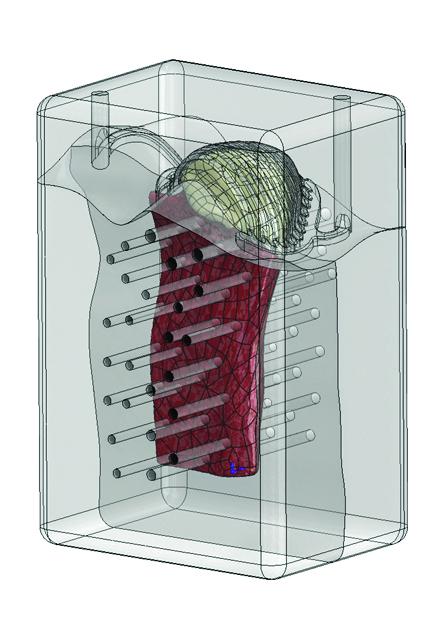
Credit: D. Chen et al., Science Translational Medicine (2020)
Scientists have engineered tissue grafts that, in pigs, regenerated both bone and cartilage in the temporomandibular joint (TMJ), a part of the jaw that can cause debilitating pain and disability when damaged. The results represent a stride toward a safer and more effective intervention for patients with TMJ disorders, which affect approximately 10 million people in the U.S. alone. The TMJ routinely experiences high loads due to its complexity and involvement in various jaw movements, and can develop damage from congenital defects, traumatic injuries, and arthritis. TMJ disorders can be a huge burden on quality of life – causing symptoms such as jaw pain and difficulty chewing – and in the worst cases can only be repaired with surgeries. However, surgical interventions are imprecise and involve multiple operations; other treatments, including medical implants and steroid injections, can cause side effects such as allergies or cannot provide permanent relief. David Chen and colleagues took a different approach where they engineered tissue grafts that, unlike previous bone-focused designs, can repair both cartilage and bone within the ramus-condyle unit of the TMJ. The researchers grew their cartilage-bone grafts using several bioreactor designs over 5 weeks and then implanted the grafts into the TMJs of pigs. The grafts remained intact 6 months after transplantation, and boosted the regeneration of TMJ tissue more effectively than other graft designs that could only repair bone. “Overall, this study resulted in a promising approach to large-scale joint reconstruction using viable tissues and opens several avenues of investigation,” Chen et al. write.
###
Media Contact
Science Press Package Team
[email protected]
Related Journal Article
http://dx.




